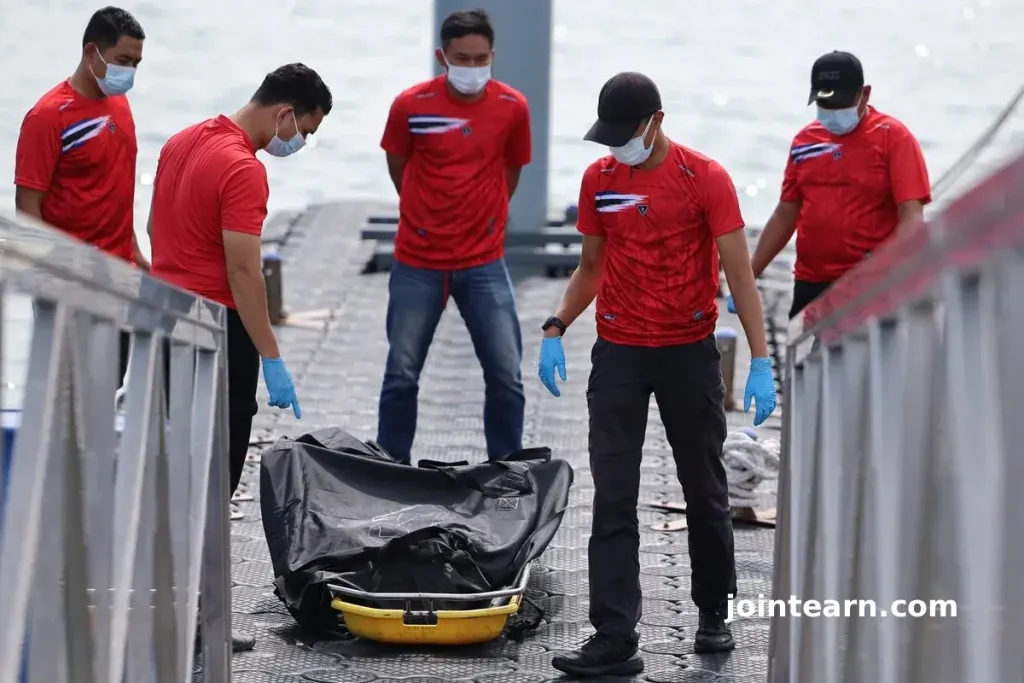
KUALA LUMPUR, Malaysia — A tragic maritime disaster has claimed the lives of at least 21 Rohingya refugees, with dozens more reported missing after a boat carrying members of Myanmar’s persecuted Muslim minority sank near the Thailand–Malaysia border late last week. The harrowing incident highlights the extreme dangers faced by Rohingya fleeing decades of persecution in Myanmar.
Rescue Operations Underway Amid Rough Seas
Malaysian authorities have confirmed that 13 survivors were rescued so far. The bodies of 12 victims were recovered in Malaysian waters, while nine more were found in neighboring Thailand, according to Romli Mustafa, regional head of Malaysia’s Maritime Enforcement Agency.
Search efforts are ongoing across nearly 170 square nautical miles around Langkawi Island, but rescuers face challenging conditions. “Without life jackets, it’s difficult for many to survive even 24 hours,” Mustafa said, adding that some passengers may still be clinging to floating debris amid rough seas.
Rohingya Refugees: Fleeing Persecution in Myanmar
The Rohingya, a Muslim minority in Myanmar’s Rakhine State, have endured years of systemic persecution, ethnic violence, and deprivation. Following a brutal military crackdown in 2017, more than 1.3 million Rohingya fled to neighboring Bangladesh, living in overcrowded refugee camps.
Hundreds of Rohingya refugees set out for Malaysia about two weeks ago, initially aboard a larger vessel before being transferred onto two smaller boats last Thursday. One of these boats, carrying roughly 70 passengers, sank near Langkawi Island, while the second vessel, believed to hold around 230 people, remains missing.
Among the missing is 29-year-old Mohammed Ibrahim, who left Bangladesh without informing his family. His relatives expressed deep concern for his young children and wife, underscoring the human toll of these perilous journeys.
Humanitarian Crisis Drives Dangerous Sea Journeys
Malaysia, a Muslim-majority country, is seen by many Rohingya as offering better prospects for work and safety, even though it does not formally recognize refugee status. Despite this, regional authorities continue to monitor and sometimes detain survivors for immigration investigations.
According to the United Nations Refugee Agency (UNHCR), over 5,100 Rohingya refugees have attempted maritime journeys from Myanmar and Bangladesh in 2025 alone, with nearly 600 reported dead or missing.
Amnesty International and other humanitarian organizations have condemned these tragedies, highlighting worsening conditions in Cox’s Bazar refugee camps, food shortages, forced labor, arbitrary detention, and ongoing conflict between the Myanmar junta and the Arakan Army.
Call for Regional Cooperation and Safe Access
Experts and aid groups urge Malaysia, Thailand, and neighboring countries to improve search-and-rescue operations, provide humanitarian assistance to survivors, and ensure refugees are not forcibly returned to Myanmar. They stress that regional cooperation is critical to preventing future maritime disasters involving Rohingya migrants.
Joe Freeman, Myanmar researcher at Amnesty International, stated: “The unconscionable practice of pushing boats away from borders must end. ASEAN leaders must act decisively to address the long-standing Rohingya boat crisis and ongoing conflict in Myanmar.”


Leave a Reply